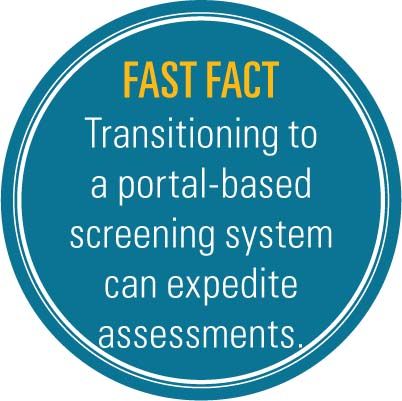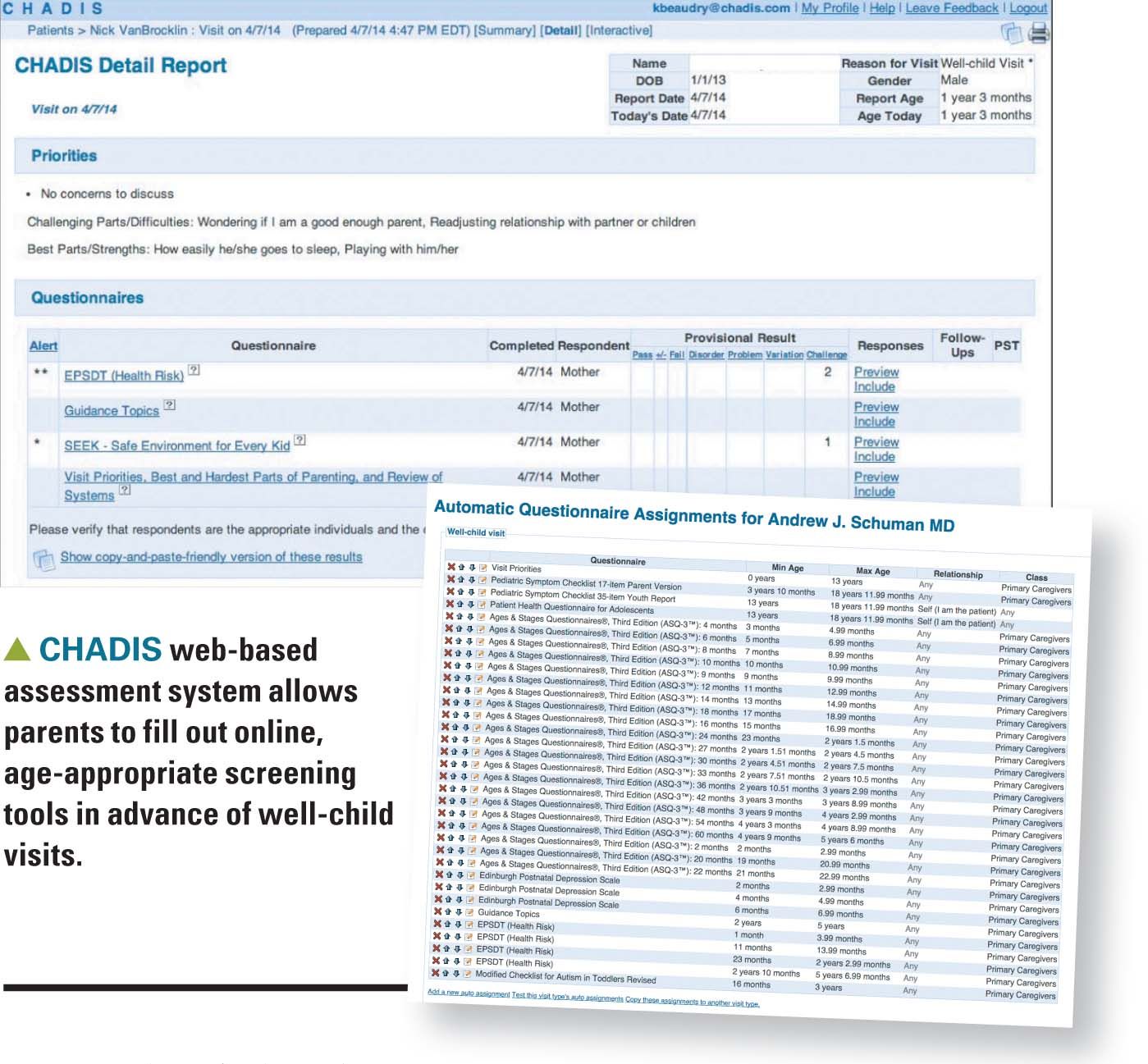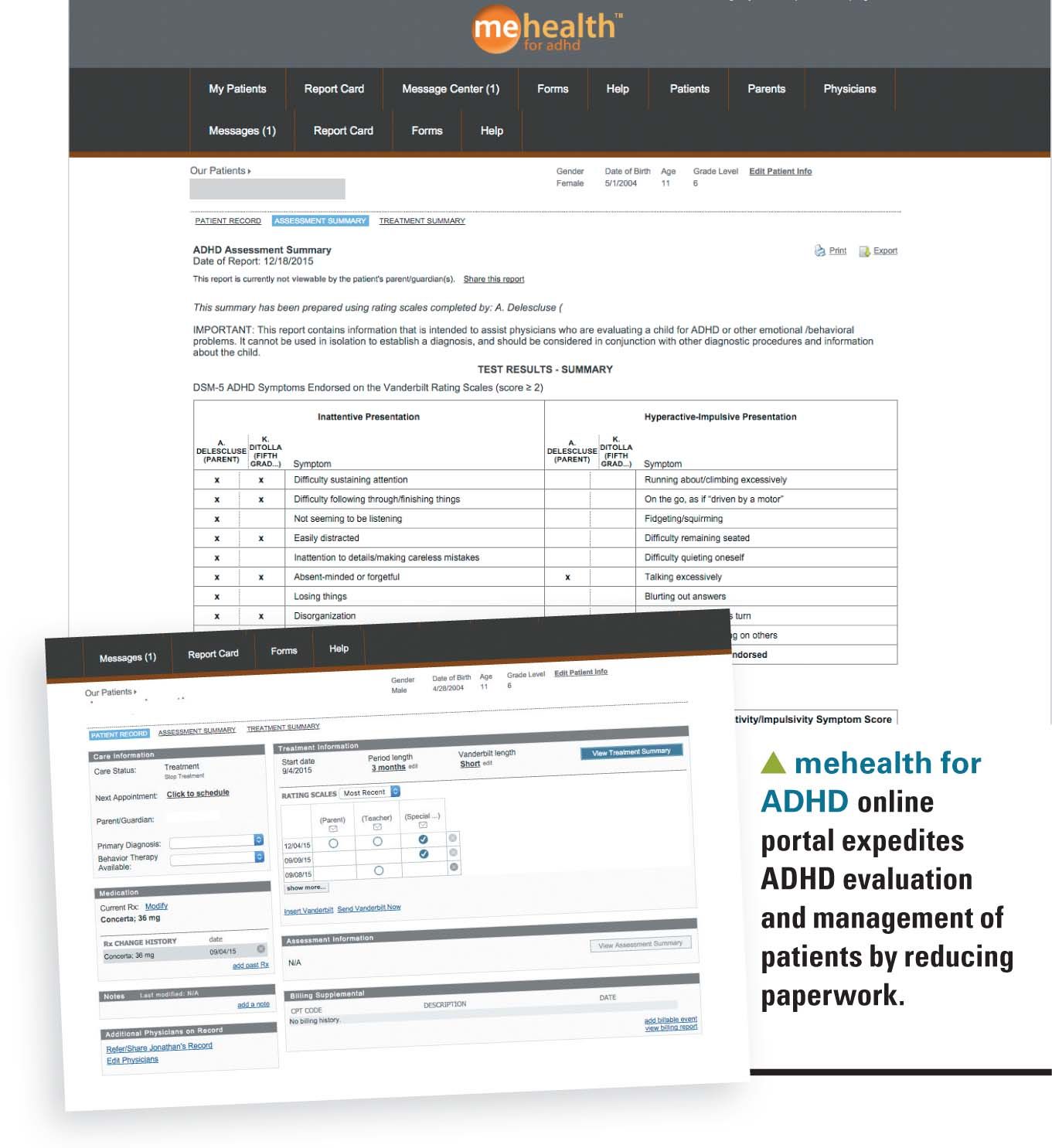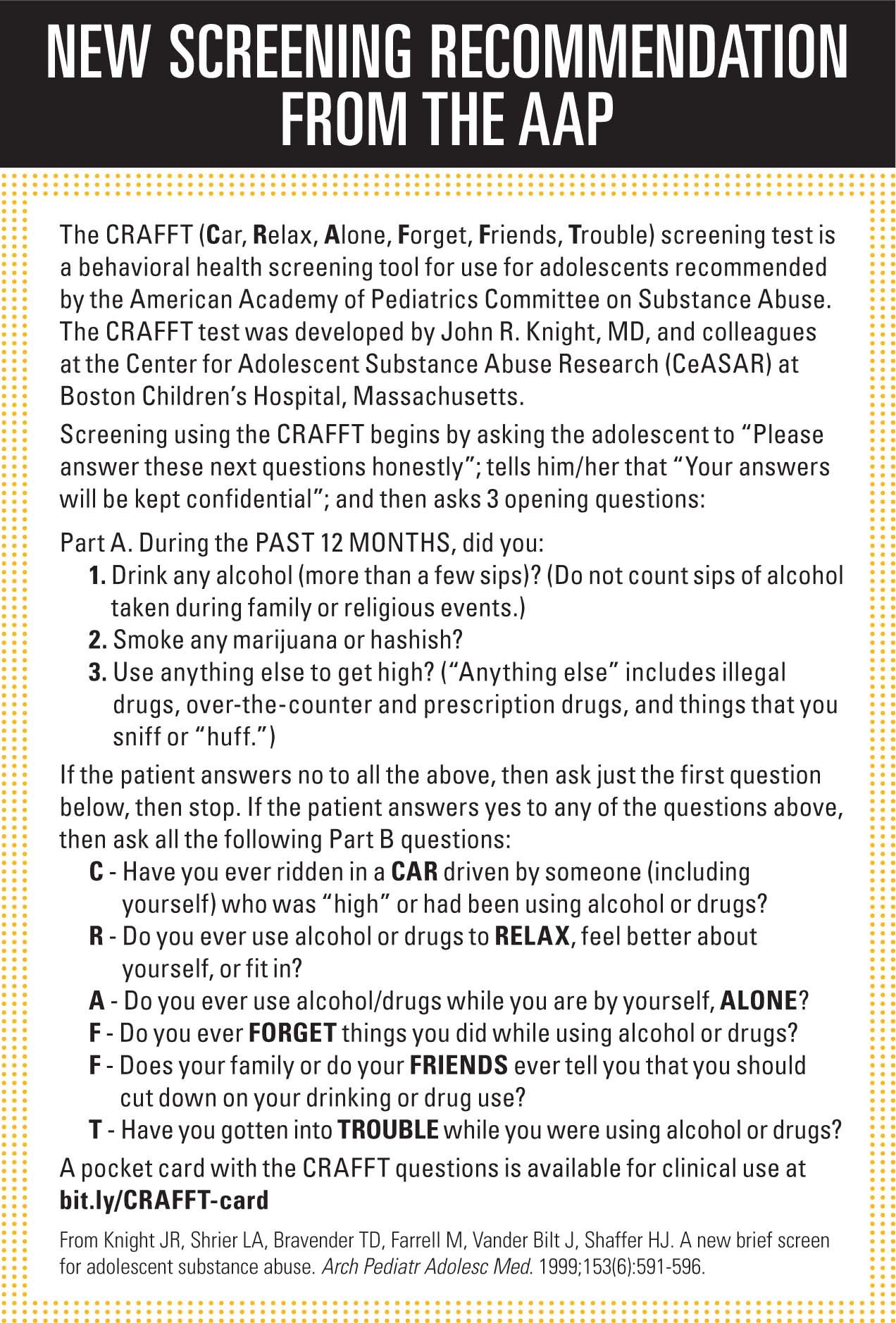Improve your practice with behavior evaluation and management portals
To continue our ongoing theme of “taking back” the practice of pediatrics for ourselves and our patients, I’d like to discuss utilizing behavior portals to facilitate the diagnosis of patients with autism spectrum disorder (ASD), developmental delay, attention-deficit/hyperactivity disorder (ADHD), as well as depression and anxiety.
To continue our ongoing theme of “taking back” the practice of pediatrics for ourselves and our patients, I’d like to discuss utilizing behavior portals to facilitate the diagnosis of patients with autism spectrum disorder (ASD), developmental delay, attention-deficit/hyperactivity disorder (ADHD), as well as depression and anxiety. By transitioning to a portal-based screening system you can expedite assessments, eliminate unneeded paperwork, and improve office workflow.
Related: What's new in "connected" devices?
Why portals?

In the digital age, parents as well as medical providers use computers and mobile devices to accomplish everyday tasks. Although pediatricians struggle with onerous and poorly designed electronic health records (EHRs), most parents prefer to communicate electronically whenever possible. We have long ago grown weary of waiting on hold to talk with a “person” to help us resolve life’s problems, so this method is rapidly becoming a means of “last resort.” We pay bills via banking portals, get the least expensive travel reservations online, and use live “chat” with support agents on websites to resolve problems with vendors. Many of us have discovered that online shopping is the best way to get a needed item inexpensively and with quick delivery (thank you, Amazon Prime!). These innovations have become so popular so quickly because everyone’s time is valuable. Additionally, we are easily persuaded to try new things because social media has long ago assuaged our fears of communicating via the Internet.
We are less paper dependent!
For years, medical practices have burdened patients with filling out previsit questionnaires, Health Insurance Portability and Accountability Act (HIPAA) forms, financial forms, and more. My May 2013 Peds v2.0 article “Winning the pediatric office paper chase” discussed how practices could move away from our dependency on paper. Now, nearly 2 years later, tech-savvy practices have learned that they can capture patient signatures digitally into practice management software, and many are connecting with enrolled patients via EHR communication portals! We are still nowhere near the achievement of a true “paperless” office, but technology has helped motivate parents to seek more efficient ways to communicate with providers, and vice versa.
Currently, the majority of pediatric practices use paper questionnaires to screen patients for developmental concerns, autism, ADHD, as well as for depression and anxiety, as recommended by the American Academy of Pediatrics (AAP). Also of note is that the recently updated Bright Futures guidelines now recommend that pediatricians screen adolescents for drug-related concerns by using the CRAFFT (Car, Relax, Alone, Forget, Friends, Trouble) tool. (See “New screening recommendation from the AAP.”)
NEXT: CHADIS
CHADIS
In 2004, 2 developmental pediatricians, Drs. Barbara Howard and Raymond Sturner, developed the Child Health and Development Interactive System (CHADIS; Total Child Health Inc; Baltimore, Maryland), a comprehensive web-based system for screening children for behavioral and developmental problems. The CHADIS online portal has received more than $12 million in federal and foundation grants for research and development of the current system. To date, more than 7000 providers from around the globe are using the CHADIS system, and it continues to grow in features and popularity.

The CHADIS assessment tool allows pediatricians to invite parents to fill out online, age-appropriate screening tools in advance of well-child visits. The CHADIS system evaluates the forms filled out by parents, performs scoring when indicated, and alerts pediatricians of issues that need to be discussed with parents at well-child or behavior-related visits. Many pediatricians speak favorably of the CHADIS system in that it allows them to identify parental concerns and behavior issues that would have gone unidentified in the past. A CHADIS subscription costs about $1000 per provider per year, paid either annually or via monthly installments with discounts available for volume licenses.
More: AAP updates preventive care visit guidelines
As of this writing, CHADIS incorporates more than 200 screening tools that pediatricians utilize frequently, such as the Modified Checklist for Autism in Toddlers Revised with Follow-up (MCHAT R/F), Ages and Stages (ASQ), Vanderbilt Assessment Scales, Patient Health Questionnaire for Adolescents (PHQ-9), and Generalized Anxiety Disorder (GAD-7) forms, as well as the newly recommended CRAFFT forms. However, CHADIS doesn’t stop at screening. It also provides a full library of resources for pediatricians and parents to assist in management once a condition is diagnosed. Another benefit of CHADIS is that Dr. Howard conducts a case webinar on a monthly basis to discuss issues related to developmental screening and management.
The CHADIS screenings can be used by parents via their home computers in advance of visits or alternatively via a tablet-based interface that is handed to them at the reception window. Inexpensive Android-based tablets such as the Asus MeMO Pad work well with CHADIS and now cost less than $100 per device. The CHADIS reports can be copied and pasted into your EHR so that the results of the screening are documented.
NEXT: mehealth for ADHD
mehealth for ADHD
A clinical study demonstrating that an Internet portal could improve ADHD care was published by researchers affiliated with Cincinnati Children’s Hospital Medical Center, Ohio, in 2011.1 The study involved 49 pediatricians at 8 practices and demonstrated significantly higher rates of many AAP–recommended ADHD care practices among pediatricians using the portal, including collection of parent and teacher rating scales for assessment of children with ADHD; use of Diagnostic and Statistical Manual of Mental Disorders (DSM) criteria, and use of teacher rating scales to monitor treatment responses.
More: Which group is seeing an increase in ADHD diagnoses?
The portal was later commercialized, and it has been available for over 2 years as mehealth for ADHD from Optimal Medicine (Marlborough, Massachusetts). Unlike CHADIS, the focus (excuse the pun) of mehealth for ADHD is exclusively on ADHD evaluation and management. Enrolled practices view an excellent series of training videos to familiarize themselves with the system. Parents seeking an evaluation are enrolled in the online portal at the time of a visit or over the phone. They then receive an e-mail with an activation code from the practice that provides access to the portal.

Parents fill out an initial medical history form as well as Vanderbilt screening forms. Subsequently, parents invite their child’s teachers to the mehealth for ADHD portal to fill out Vanderbilt forms. Once completed, all forms are scored and are available in the patient’s mehealth for ADHD record, and an e-mail is sent to the physician to alert him or her that a completed record is available for review. A report is generated with detailed interpretation and recommendations. This facilitates the discussion of the diagnosis with parents at the follow-up visit. If a child is placed on medication, then questionnaires are automatically sent to parents and teachers at preselected intervals (eg, 3 months) to help monitor the response to treatment and alert providers of any symptoms suggesting medication adverse effects. The report can be shared with parents via the portal or printed. Results also can be copied and pasted into the office note and the full report can be integrated via a pdf file.
My practice is conducting a “pilot” with mehealth for ADHD, and so far we’ve been very pleased with the results. It has expedited evaluations while reducing our paperwork burden and has totally eliminated the need for manual scoring of Vanderbilt forms. The follow-up teacher Vanderbilt forms have been a helpful aid in adjusting medications. We were just not doing follow-up Vanderbilt forms in our practice, and we acknowledge this adds much to “fine-tuning” a patient’s medication regimen.
Mehealth for ADHD is very affordable, just $80 per month or the first provider and $40 per month for all subsequent providers. Of note is that the AAP has launched a “Chapter Quality Network ADHD Project” involving 6 chapters in 5 states using the mehealth for ADHD system. The purpose of the project is to “catalyze improvements in ADHD care and outcomes.”
NEXT: Getting a return on investment
Return on investment
Behavioral and developmental screening should be billed by practices with a 99420 Current Procedural Terminology (CPT) code for depression screening as well as a 96110 CPT code for developmental screening. By doing so, a practice can retrieve an average of $10 per screen, so it is possible that when practices bill for screening services consistently, CHADIS or mehealth for ADHD will pay for itself. Another benefit is that merely by using these portals on a regular basis, pediatricians can earn MOC Part 4 credits. Currently, CHADIS offers 3 MOC Part 4 modules and mehealth for ADHD offers 1. Each module provides 25 MOC Part 4 credits.

Obstacles
Whenever practices attempt to “think differently,” it will take some work and effort on everyone’s part to make the transition smooth and painless. To use either CHADIS or mehealth for ADHD, providers and staff need to be trained to use the system and a workflow needs to be developed and tested to make sure things go smoothly. It also requires that physicians are consistent with encouraging patients to fill out forms at home in advance of visits whenever possible. If not, then parents may need to “rush” through filling out electronic forms on a tablet while minding their children. A good way to remind parents is to send out reminder e-mails on a weekly basis, and/or text messages, until the forms are completed.
Conclusion
Over the next few years, it is likely that more and more services will be available via specialized portals like the 2 described in this article. As discussed in previous Peds v2.0 articles (June 2015 and July 2015), telehealth portals are now available that provide patients with speech therapy, mental health counseling, and health coaching in the comfort of their homes. I plan to keep our readers informed when new screening tools and diagnostic services become available.
REFERENCE
1. Epstein JN, Langberg JM, Lichtenstein PK, Kolb R, Altaye M, Simon JO. Use of an Internet portal to improve community-based pediatric ADHD care: a cluster randomized trial. Pediatrics. 2011;128(5):e1201-e1208.
Dr Schuman, section editor for Peds v2.0, is adjunct assistant professor of pediatrics, Geisel School of Medicine at Dartmouth, Lebanon, New Hampshire, and editorial advisory board member of Contemporary Pediatrics. He has nothing to disclose in regard to affiliations with or financial interests in any organizations that may have an interest in any part of this article.
Anger hurts your team’s performance and health, and yours too
October 25th 2024Anger in health care affects both patients and professionals with rising violence and negative health outcomes, but understanding its triggers and applying de-escalation techniques can help manage this pervasive issue.